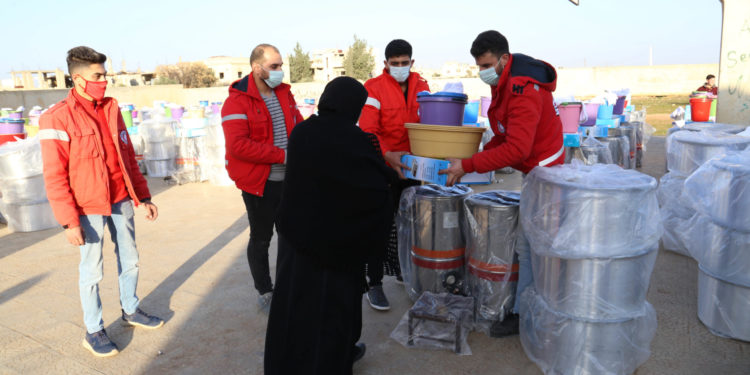With the aim of empowering them financially and helping them enter the labor market and gain a steady source of income to support their families, the Syrian Arab Red Crescent, with the support of the International Committee of the Red Cross, implemented the household industries project in the Daraa Al-Balad and Al-Sadd Road areas. The project covered 100 breadwinning women who have experience in household food industries and lost Their business due to the crisis.

Essential materials for dairy and cheese production
After the Syrian Arab Red Crescent volunteers conducted field visits to the two mentioned areas, they worked on distributing the project inputs, which included basic tools for the dairy and cheese industry, which are: (2 barrels, 3 pans, 2 plastic buckets, 3 cloth bags, 3 container, an electronic scale, ground gas stove).

About the cottage industries project
This community project is the first of its kind implemented by the Livelihoods Program in Daraa Governorate, as it was chosen after numerous field visits that aimed to assess the needs of the targeted areas and identify the most affected groups. the project mainly seeks to help the beneficiary families restore and enhance their livelihoods, And achieving an income to cover the necessary expenses through the use of the provided inputs. The beneficiaries also received training sessions on how to use the business book in order to help them calculate the net profit from the capital, thus achieving the desired economic viability of the project.

Conditions and criteria for benefiting from the project
In order to reach the most vulnerable families in the Daraa Al-Balad and Al-Sadd Road areas that work in the dairy and cheese industry, the volunteers worked to select the 100 beneficiary families based on the following conditions and criteria:
1- Mandatory Conditions:
• Female-headed families (widows or divorced women).
• Owners of cottage industries who lost their jobs during the crisis and have sufficient experience in household food industries.
• Families not included in similar programs.
• A suitable place to work.
2– Priority Criteria for Selection:
• Families that have a high dependency ratio (people with special needs).
• The desire to work and the ability to follow up on the project.
• The ability to secure raw materials.
• The ability to market products.


